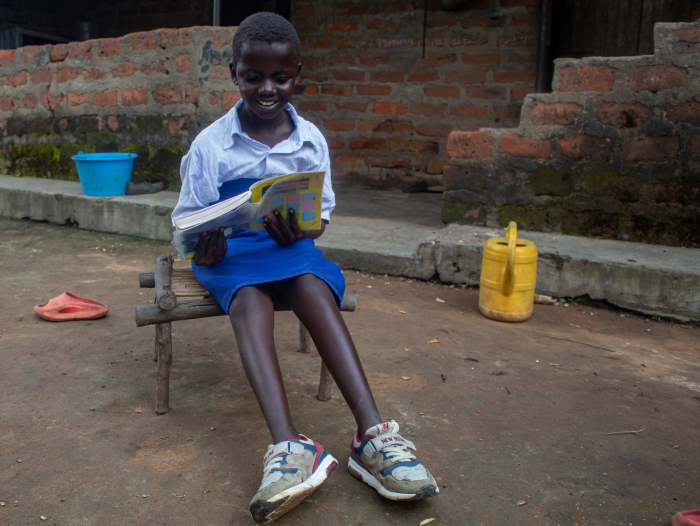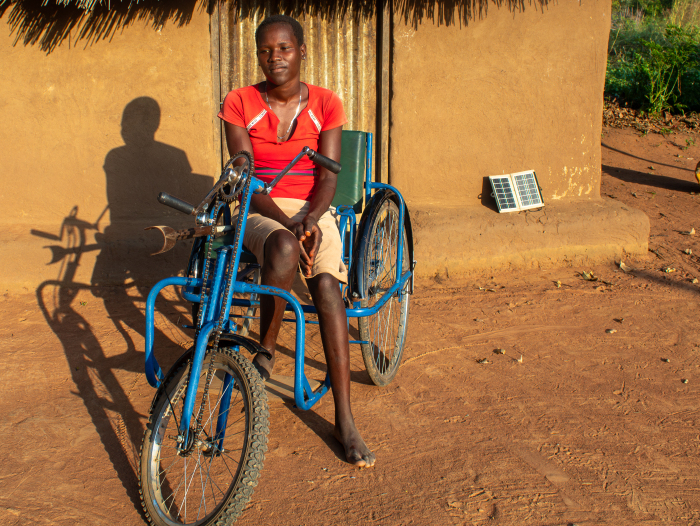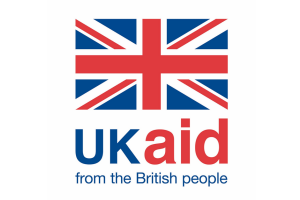Improving access to education for children in South Sudan
Thanks to generous donations from the people of Scotland, SCIAF’s 2021 WEE BOX appeal raised over £2.8 million, including £1.3 million in match funding from the UK government to support some of the most marginalised children in South Sudan.
What's happening in South Sudan?
Born from decades of civil war, its 14-year history has been plagued by violence – and conflict remains commonplace. As one the world's poorest countries, conflict and civil war have had a catastrophic effect on the country’s fragile economy. And repeated episodes of flooding and drought have left millions of people enduring extreme hunger.
For the majority of people in South Sudan, life is extremely hard. But for the most marginalised – women, the young, the old and those with disabilities – it’s near impossible.
How is SCIAF helping?
With our partner, SEM, we’ve been helping hundreds of young people with disabilities access mainstream education, challenging negative stereotypes about gender and disability, and improving inclusivity in the communities we work.
For young people who needed emergency medical care, funding was also provided for them to access healthcare in Uganda, so they could recover and continue with their everyday activities.
Together, this work has helped transform lives, and kick-started initiatives that will have a lasting impact.
of the population live in extreme poverty
of the population are in need of humanitarian assistance
is one of the world's newest but poorest countries

Malia's story
Malia has shown incredible bravery throughout her young life.
When Malia was a baby, she suffered from hydrocephalus, a build-up of excessive fluid on her brain – which, left untreated, can be fatal. To make matters worse, during this traumatic time for the family, Malia’s father abandoned her when her disability was discovered.
However, SCIAF’s local partners Sudan Evangelical Mission (SEM) has helped restore hope to Malia’s life. Funding enabled her to travel to Uganda to access emergency surgery, draining the fluid from her head.
When we met with Malia a few months ago, she told us:
“If it hadn’t been for SCIAF and SEM providing money for my treatment, I would have died a long time ago. I am alive now because of SCIAF and SEM. I am in primary school and – when I’m older – I would like to become a doctor. I feel happy going to school and reading my books because I know I will have a bright future, in spite of my disability.
"The SCIAF project has helped me become courageous. SEM staff are so loving, they see me as their own daughter.”
with disabilities were helped to access education
have been trained in inclusive education
were provided with reusable, washable menstrual pads
Accessing education
In South Sudan, to attend school, young people must be able to meet their own personal care requirements. But for many children with disabilities, these tasks can be extremely challenging – and a major obstacle to accessing education.
There is often also failure to consider the baisc needs of women and girls; menstrual health is often disregarded.
Together, thanks to a person-centred approach, hundreds of extraordinary students are now attending school – something they couldn’t do or wouldn’t consider doing before the project began.
In schools, to support inclusive learning, we have:
- repaired classrooms
- installed ramps
- provided desks
- trained teachers in inclusive education
- supplied braille and audio tapes so children with additional needs can join in
- trained students, teachers and community members in sign-language
- provided uniforms for the most disadvantaged families.
- established several new school clubs.
These school activities include debating clubs to boost confidence; gardening clubs to learn about growing food; sport clubs that bring together girls and boys of all abilities; and health clubs focused on personal and menstrual care, challenging stigmas and taboos.
Work in the communities has focused on challenging attitudes and behaviours and building a long-lasting commitment to inclusive education.
A focus on empowering girls
In poor countries like South Sudan, many young women miss school every month because of their periods. Often, this is due to a lack of menstrual products or inadequate facilities which mean they cannot manage their periods safely and privately.
What’s more, menstruation is often surrounded by stigma and shrouded in shame, decreasing girls’ confidence and leading to school dropouts.
To address these challenges, this project has provided menstrual pads to girls across South Sudan. These pads are made from reusable materials, so can be washed and used again safely without additional expense.
Through our local partners, we also helped raise awareness about womens' issues and period health through special community workshops.
The key message throughout this work is that every child, regardless of their gender or ability, has the right to go to school – and that education is of vital importance in breaking the cycle of poverty.

Vaida's story
Vaida explained how help through our partners changed her life:
“As I grew up, walking became really difficult. I couldn’t go anywhere – it was frustrating as, like any child, I wanted to move around. If I wanted to go anywhere, I was a burden as people had to carry me. It made me feel really bad.
“I was given a tricycle that I use now, as well as an elbow crutch, my school uniform, menstrual pads and soap. SEM staff visit me regularly to do therapy on my legs, which is why I’m now able to move around using the crutch!
‘’The tricycle helps me travel longer distances – like to school, church, the market, the garden. It helps me carry water too.
“At school, thanks to SEM, I feel smart in my school uniform. The sanitary pads and soap have allowed me to stay in school too. We used to buy menstrual products from the market – but when there was no money, it meant that I missed school due to my periods."
“I want to say a big thank you to SCIAF and SEM who have helped me with all these things. If it was not for their presence in my life, I would have been so miserable. May God bless them and allow them to continue helping others in need."
Supported by the UK government

Back to